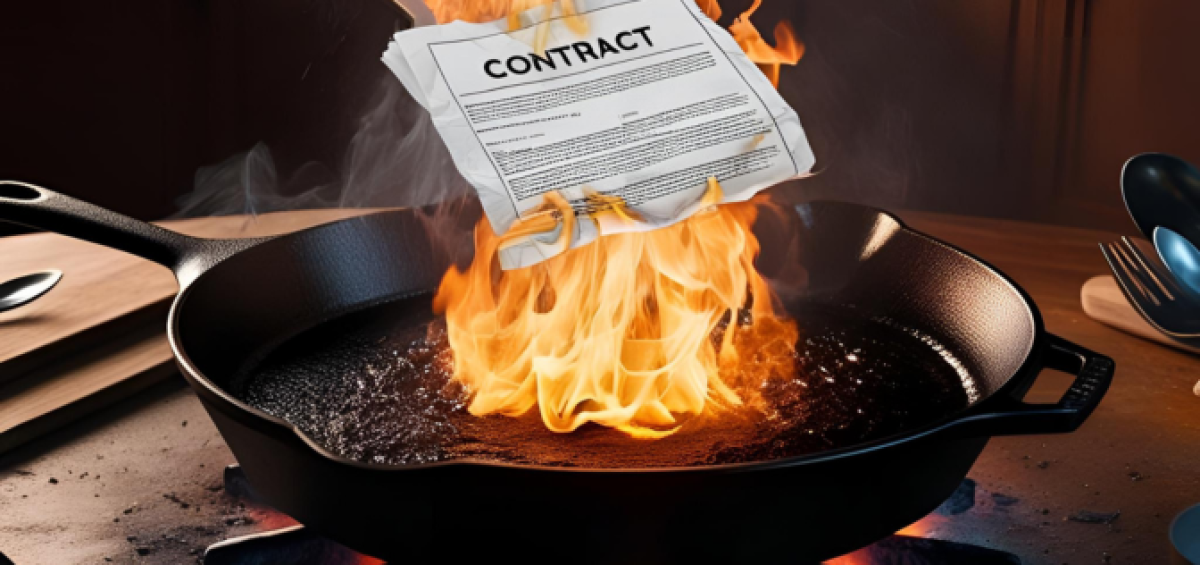by Robert Tobey & Chad Baruch
Johnston Tobey Baruch
Every lawyer dreads the prospect of a grievance. The most common reasons for grievance sanctions against Texas lawyers are:
Lack of communication—28%
Breaches of integrity—24%
Neglect—23%
Issues in declining or terminating representation—14%
Safeguarding client property—11%
The top practice areas for sanctions are:
Civil—39%
Family—23%
Criminal—22%
Personal injury—9%
Probate/wills—7%
Here are a few tips for steering clear of grievances:
Set reasonable expectations.
Clients often file grievances as a result of frustration over the outcome in their case. Avoid the temptation to oversell the prospects for success and set reasonable expectations both in terms of the overall case and particular matters that arise during litigation.
Establish clear payment requirements from the get-go.
While fee disputes may not account for a substantial portion of the sanctions assessed against Texas lawyers, they do comprise a large percentage of the grievances that get filed. Responding to these grievances takes time and money. Protect yourself by ensuring that clients understand their obligations when it comes to fees. And resist the temptation to allow clients to accrue large unpaid balances.
Do things early.
By far, the most common source of lawyer malpractice is missing deadlines. Obviously, the importance of a strong calendaring system (including some sort of backup or redundancy) probably is your best defense against client complaints. But here’s another one: Don’t wait until the last minute! To do anything! Don’t allow your practice to be driven by deadlines rather than your client’s best interest. Form a habit of acting before deadlines—not on them.
Communicate, communicate, communicate.
Rule 1.03 requires that you keep each client reasonably informed about the status of a matter and promptly comply with reasonable requests for information. The rule also requires that you explain a matter to the extent reasonably necessary to permit the client to make informed decisions regarding the representation.
Many grievances arise simply because clients grow frustrated when lawyers don’t return calls or emails. So, a steady flow of communication from lawyer to client is one of the most effective means to avoid grievances.
Communicate inside the firm.
Remote work presents special challenges for communication among firm staff. If you have lawyers or staff members who work from home, set up safeguards to ensure adequate communication within the firm.
Never withhold bad news.
Bad news is like stinky cheese: it gets worse with the passage of time. Enough said.
A related point: Don’t let the cover-up be worse than the crime.
Remember, malpractice means a mistake. Don’t turn a simple mistake into a grievance by trying to cover up your error.
Refer business out.
In today’s difficult legal market, too many lawyers are keeping business they once referred to a specialist. If you don’t know family law, don’t try to practice family law. Don’t let slow times push you into areas where you are likely to make mistakes.
Don’t create the client’s best exhibit (or let them create their own).
No matter how justified, your sarcastic, snarky, hostile, or demeaning email to the client will be exhibit number one in the grievance process. Meanwhile, your consistent polite tone in emails will undercut any allegation of unprofessional behavior. So, be civil in all communications with the client—no matter how much venom you receive in return.
Also, don’t let the client “gin up” exhibits by misstating previous communications. The client may send you an email saying “You told me XYZ” when you said nothing of the sort (or even said the opposite). Don’t let misstatements go unaddressed—send a polite but firm email correcting them.
Beware unwittingly forming an attorney-client relationship.
If the client has a reasonable basis to believe that an attorney-client relationship exists, then it probably does. Protect yourself against unintended attorney-client relationships by spelling out the identity of the client explicitly in your engagement letter and disclaiming representation of anyone else.
Take particular care in the common trouble areas of multi-passenger car wrecks, majority and minority venture investors, corporate officers and shareholders, limited and general partners, and controlling and non-controlling members of business entities. Disciplinary Rule 1.07 contains an excellent conflicts checklist to use as a reference.
If you do undertake joint representation, your client letter should include at least the following:
- Written confirmation by each client that no conflict exists.
- Client agreement to inform you if a conflict arises.
- Consent to joint representation.
- Your recommendation for separate representation.
Be very careful about suing your client for fees.
If you don’t want a dispute with your client … don’t sue your client. When you sue for fees, the client (and the client’s new lawyer) will review your file with a magnifying glass looking for every possible mistake.
Also, if you must sue your client for fees, be certain that you clear that with your insurance carrier first. Some carriers now exempt from coverage any malpractice case filed as a counterclaim to your lawsuit for fees. Others void coverage when you sue without advance notice to the carrier.
Decline matters promptly and clearly—without providing legal advice.
Whether you or someone does your intake, make sure that they get enough information for you to determine with reasonable certainty when the statute of limitations will run on the claim. Have a procedure in place for immediate rejection of potential clients whose claims are too close to limitations.
Always send a written communication stating clearly that you are not taking the case—and not doing anything to protect the potential client’s interests. Advise the rejected client that limitations are running and they should retain other counsel to take steps to preserve their claims. But we caution against stating when limitations will expire unless you are absolutely certain.
A final guidepost.
Our partner, Randy Johnston, sometimes offers lawyers a simple way of resolving potential ethical quandaries. If you reach an ethical fork in the road, choose the path that makes you the least money. This surely isn’t a legal test, but it usually will keep you out of trouble!
Conclusion
Of course, an attorney may follow all of these rules and still be the target of a grievance. But adhering to these rules should reduce the risk of having to face the disciplinary process. ♦
 Robert Tobey | Texas Bar College Board Director and 29-Year College Fellow
Robert Tobey | Texas Bar College Board Director and 29-Year College Fellow
Robert is Board Certified in Consumer and Commercial Law by the Texas Board of Legal Specialization. More than any other specialization, this one requires a broad knowledge of civil law. A 1980 graduate of the University of Texas School of law, Robert began his undergraduate work at Southern Methodist University and graduated as a finance major (B.S. in Economics) from the Wharton School of Business at the University of Pennsylvania. For the past decade, Robert has been involved with a number of legal industry organizations. He served as President of the Dallas Bar Association (2020), Co-Chair of the Equal Access to Justice Campaign (2014-15), Chair of the Trials Skills Section (2015), the CLE Committee (2015), the Judiciary Committee (2014), the Transition to Law Committee (2013), the Bench Bar Committee (2012), the Tort and Insurance Practice Section (2011) and the Business Litigation Section (2010). Robert also served as Chair of the Advisory Board of the Greater Dallas Chapter of the Alzheimer’s Association.
 Chad Baruch | Former Texas Bar College Board Director and 20-Year College Fellow
Chad Baruch | Former Texas Bar College Board Director and 20-Year College Fellow
Chad Baruch is certified in civil appellate law by the Texas Board of Legal Specialization. A longtime solo practitioner, Baruch is now a shareholder in Johnston Tobey Baruch in Dallas. Baruch has served as chair of the State Bar Board of Directors and the Texas Bar College, Council of Chairs, Consumer and Commercial Law Section, and Individual Rights and Responsibilities Section. Chad’s work has garnered him numerous awards over recent years, including the Texas Bar College Jim Bowmer Professionalism Award in 2019. A frequent continuing legal education speaker, Baruch received the 2015 State Bar of Texas Gene Cavin Award for lifetime contributions to CLE and the 2016 Texas Bar Foundation Dan Rugeley Price Memorial Award for excellence in legal writing and commitment to the profession. The Texas Access to Justice Commission has named him a Pro Bono Champion. Alongside his legal career, Baruch has served as a college and high school head basketball coach and government teacher. He received a bachelor’s degree from the University of Minnesota and his law degree from the University of Minnesota Law School.
Read More
Member Spotlight: Mark Edward Harrington
Enjoy this inspiring profile of member Mark Edward Harrington of Houston discussing memorable moments, fun facts, and why he joined Texas Bar College.
Ten things every young lawyer should know, but doesn’t (Because they don’t teach it in law school)
1. The goal of your law practice is not to become a partner.
by Randy Johnston




